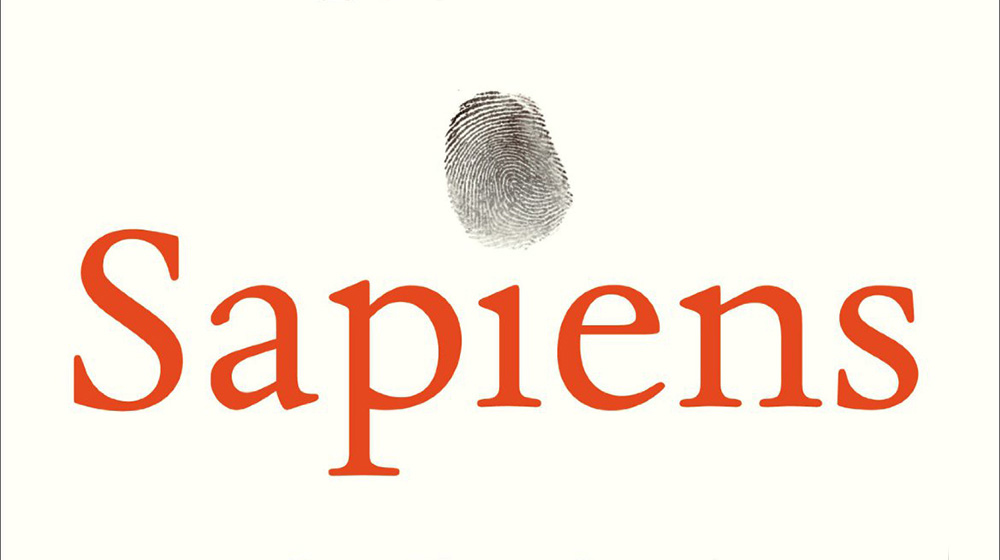This is the first in an occasional series of book synopses for smart people who intend to read great books about life, but don’t get round to it. Don’t worry, I’ll read them for you! When I come across a stunner, I’ll write up the main points as I see them.
I’m delighted to start this series with Sapiens – it’s the most exciting book I’ve read in, well maybe ever.
NB Spoiler Alert (obviously)! If you do have time to read it then stop here and get yourself a copy. Harari is a great storyteller and this is one hell of a tale.
What’s the Author’s Background?
He’s an Israeli historian at the University of Jerusalem (this book has nothing to do with Israel or Jewish history).
What’s His Angle?
He pursues mankind’s development through the lens of biological imperatives.
What’s the Scope of the Book?
Early man to present day.
What are the Main Points?
- Homo Sapiens became the only species of man by mating with, as well as probably fighting with, other species of man. Several types of man existed at the same time in different parts of the world and their genes are present in modern day Homo Sapiens.
- Home Sapiens have a unique ability which has driven their development and supremacy over other creatures. We are have imagination and are able to conceive of and communicate ‘myths’. ‘Myths’ are abstract concepts which, in believing in them, allows us to trust (and therefore cooperate with) thousands of people we have never met and work together with them for a common purpose. Examples might be a nation, a religion, money, a brand, an ideology.No other being is able to do this, either they are able to work in large numbers (eg ants) but not very flexibly, or they are able to work together flexibly but not in large numbers (eg apes can only trust those they have met and ideally, have also groomed).
This gives us a huge advantage over other animals. It also allows us to work on things over time. This ability has been one of the drivers of the development of science – we believe in it and we work together and over generations, to solve mysteries and create solutions.But, he says, science would be nowhere without capitalism. Capitalism has always funded science in order to benefit from it. Science follows the money. It focuses where there are funds. Areas where there is no money, science does not thrive.
- There is a chapter on capitalism and the concept of money, debt, and the necessity of trust in the future and in the concept of growth for lending to be possible. He also explores the idea that capitalism only works when profits are reinvested in the business. He notes that today, that’s not happening reliably and hence capitalism is not working as the original model intended.
- Running through the book, as we progress from early man to present day, is commentary on the development of religions- important as they unite groups and individuals (and separate them). The evolution of these religions chart man’s self-importance and ego. We move from animism where we see ourselves as just another part of nature and worship gods in the natural world, through worshipping many gods, then to one god who we believe we are made in the image of, and this god thinks we are special individually. Finally, we are moving to humanism, a belief in no god. The idea is that man is becoming his own god now as his ego is developing with no restraint.
- The next theme is one of man’s constant dissatisfaction which drives him to want more and more. Harari contrasts the benefits of modern man/science, for example feeding those who would otherwise starve, curing the sick with the fact that we become slaves to convenience, having to work harder and spending less time with each other because we need to earn more to support our ‘convenient’ lifestyles. This dissatisfaction drives us like a donkey with a carrot dangling off a stick in front of him. He’ll never get that carrot and we’ll never be happy if we don’t acknowledge the real nature of happiness is not about pursuing things. This dissatisfaction is a driver for our never-ending search for happiness.
- The final big idea ties these strands together in predictions about evolution of our species. He sees the time when mankind will no longer develop via natural selection, but by intelligent design and that time is now. ‘Homo sapiens as we know them will disappear in a century or so’, he says. They will be replaced by creations from any/all of:
- Biological engineering (engineered man)
- Cyborg engineering (part man, part technology)
- Inorganic engineering (all technology)
We are more powerful than ever before but we have very little idea of what to do with that power.
He points to the scientific developments that are being made in the name of disease prevention but in fact are changing mankind. Most inventions are made for one purpose but end up being used for another – and so it is with these disease-preventing inventions. He believes that what we are doing is creating a new form of mankind but what is dangerous about this is that we are doing so almost by accident.
Is there anything more dangerous than dissatisfied and irresponsible gods that don’t know what they want?
This new form of mankind will need new laws, new ethics, and for us to revisit all parts of society and decide how we want them to work. For example, how will identity be defined when parts are interchangeable – what will the ‘self’ consist of? What will the rules of sport be when there is no longer a level playing field? How will pension funds and labour markets adjust to some of us having extended lives and capabilities? However, because we are not acknowledging what we are doing, we are launching these new beings into the world with no proper planning, which is dangerous. We don’t know what we want. We are irresponsible and accountable to no one. As we design new man, what do we want them to want? Harari ends by creating an impression of man as all powerful and I was left with an image of Toad of Toad Hall. All power and no responsibility. A catastrophe waiting to happen? From a narrative perspective (and this is a well told story), as the book closes, we are on a knife edge, awaiting the next instalment.
Fortunately, Yuval Noah Harari has written the next chapter in the history of man – Homo Deus: A brief history of tomorrow. That’s next on my list. I don’t know whether to be excited or afraid.






